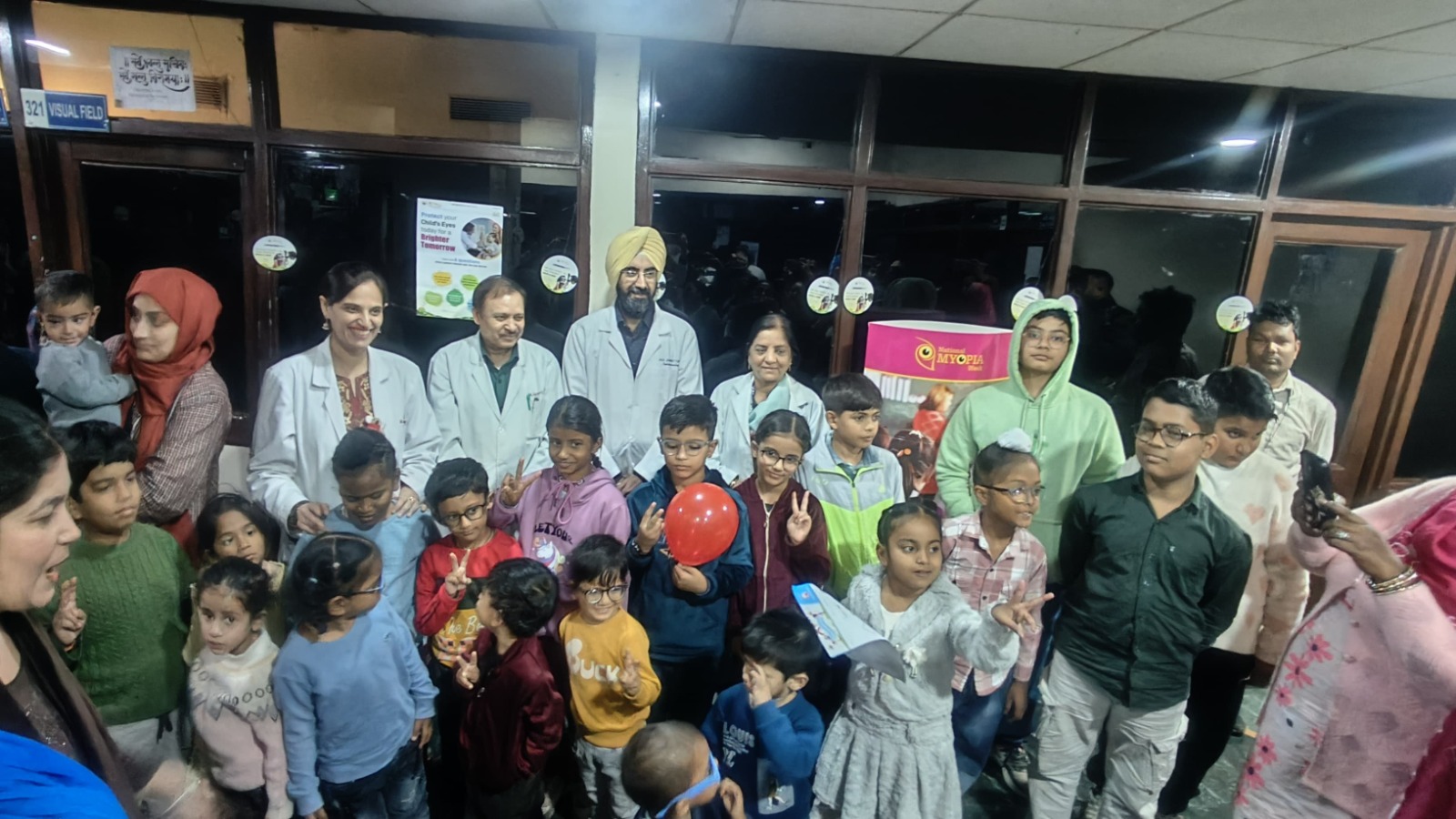
early times report
Chandigarh, Nov 21: The Pediatric Ophthalmology Division at the Advanced Eye Centre, PGIMER, successfully wrapped up an educational National Myopia Awareness Week (Nov 14-21), aimed at raising awareness among children and parents about the growing risk of myopia (nearsightedness). The week began with a fun and creative colouring competition for young children, attending the outpatient Pediatric Ophthalmology Clinic.
Throughout the week, the centre distributed informative pamphlets to parents. The importance of regular eye check-ups for early detection and strategies to slow myopia progression were also discussed.
The Pediatric Ophthalmology Division at PGIMER’s Advanced Eye Centre is dedicated to diagnosing, treating, and educating about a wide range of childhood eye conditions, including refractive errors like myopia. With a team of four experienced specialists (including Dr Jaspreet Sukhija, Dr Srishti raj, Dr Shweta Chaurasia and Dr Savleen Kaur) , the centre combines clinical care with extensive research published and on going in the same field. “In our clinic, we are now seeing 50-60 new pediatric myopia patients every month, of whom about 43% are high myopes,” said Dr. Jaspreet Sukhija, Professor, Pediatric Ophthalmology Services, Advanced Eye Centre. This high proportion underscores the urgent need for awareness and early intervention.
These local observations align with wider national and global trends. Studies suggest that myopia is rising rapidly in children, propelled by modern lifestyle factors such as increased screen use and reduced outdoor time. In India, predictions indicate that nearly one in three urban children could be myopic by 2030, with prevalence estimated to rise to 48% by 2050. Myopia in childhood is not just about the burden of glasses but high myopia carries a greater risk of sight-threatening complications later in life, such as retinal detachment or glaucoma. By promoting awareness, the Pediatric Ophthalmology team at PGIMER hopes to encourage parents to get their children’s eyes checked early for myopia, especially if there is a family history of myopia. They also advocate lifestyle changes that help prevent or slow progression - including limiting screen time and increasing outdoor activity. There are various clinical interventions like low-dose atropine or specialized smart glasses that are now available to slow the progression of myopia.
|
